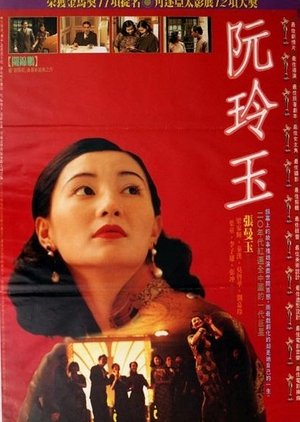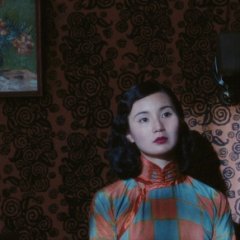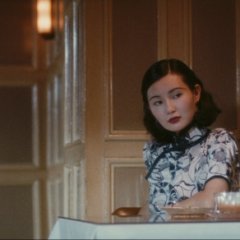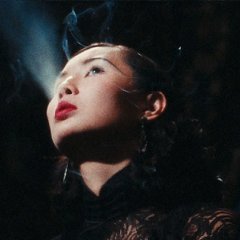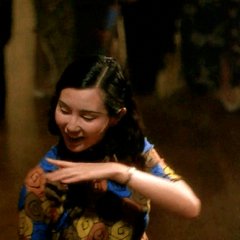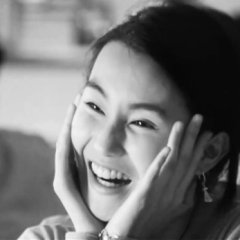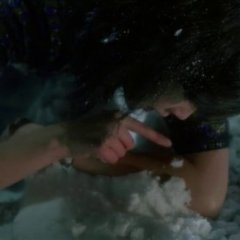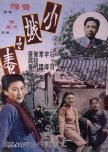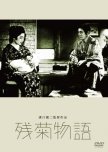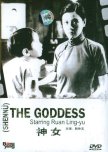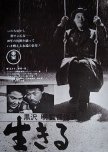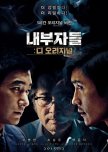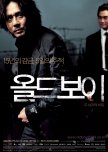- Português (Portugal)
- 中文(台灣)
- English
- magyar / magyar nyelv
- Título original: 阮玲玉
- Também conhecido como:
- Diretor: Stanley Kwan
- Roteirista: Peggy Chiao
- Gêneros: Histórico, Vida
Onde assistir Center Stage
Grátis (sub)
Elenco e Créditos
- Maggie Cheung Papel Principal
- Chin HanTang Ji ShanPapel Secundário
- Lawrence NgZhang DaminPapel Secundário
- Tony LeungCai Chu ShengPapel Secundário
- Carina LauLi LiliPapel Secundário
- Zhou JieLiu QiongPapel Secundário
Resenhas

Esta resenha pode conter spoilers
"Gossip is a fearful thing"
When I watched Ruan Ling Yu in The Goddess I was mesmerized by her performance. It was honestly one of the best performances by an actress I had seen in a long time. Discovering that she had taken her own life at such a young age was crushing. Center Stage was a strange amalgam of documentary and movie about her captivating and tragic life.In one of her best performances, the ethereal Maggie Cheung played Ruan. During an interview she stated she could understand how Ruan must have felt finally going from secondary "wall flower" roles to having serious roles offered to her. Maggie had plenty of ditzy female characters on her resume before this film and afterwards would go on to star in such films as In the Mood for Love and Hero. In much the same way Ruan had suffered from gossip, Maggie also understood the vicious nature of gossip about actors' personal lives
The set-up of the film did not work for me. Ruan was a gifted actress with a sad, yet fascinating life. The back-and-forth between re-enactment and interviews and behind the scenes shots destroyed the rhythm of the story. It was very distracting when the film cut from a disturbing scene straight to an interview with a 90-year-old who knew Ruan. Some of the interviews and speculations did not line up with the timeframe of the story as it was laid out which could make the following scenes confusing. Due to the film's structure, I was always aware that people were acting and it destroyed my emotional connection to what was happening on screen. For me, it would have been far better if they'd shown the interviews after the film along with the behind-the-scenes shots. Having the director yell that he could see Maggie breathing and then show them reshooting the scene and then presenting what was supposed to be a sorrowful funeral felt emotionally false.
When the movie had longer stretches of showing Ruan's story instead of people telling us her story, it was much more meaningful. But just as the joyful or sorrowful moods would crescendo, there would be a startling halt and a cut to the documentary.
Ruan Ling Yu was a stunning actress who lived a tumultuous life, having had three different lovers who contributed to some if not most of her problems. Two of the men were married with multiple mistresses and her first love was an inveterate gambler and womanizer. They cost her dearly financially and personally. Because of the constant tonal shifts in the film there would be no catharsis for the viewer at the end as the gossipy papers and people wrought devastation on her life pushing her into a corner, she saw only one way out of. By the time of the funeral scene, it felt more like a sterile documentary with high-end re-enactments one might find on television.
What kept my attention was Maggie's performance and her insightful interviews. The film also had clips and images from Ruan's films no longer available. I found the business aspects of the film informative, more so when they let the characters show the business dealings instead of the documentary telling about them. There were so many sides of this complicated woman to explore which were not touched on, such as---Why did she always choose cruel, unavailable men? Much of the action took place when Japan had invaded Manchuria causing political and financial upheavals which were barely touched upon.
When Ruan starred in New Women, based on a real actress who had been hounded by the press and committed suicide, it exposed an unflattering and malodorous side of the press. Instead of self-reflection and changing of their ways or going after the men in the film or the studio, they turned on her and hunted her relentlessly, plastering what they wanted to about her private life in their rags. I felt the film let me down with explaining the ex-lover's story and how he was legally tied to her. Born a wealthy man, his family disapproved of Ruan, the reason he gave for not marrying her. He burned through his money gambling, then turned to Ruan to support him. When she tired of dealing with him, she broke it off. They had never been married and yet he sued her for support and later for adultery. The last lawsuit seemed to be the final straw for her along with the cruel gossip.
The film's stuttering style failed to affect me emotionally. Which is a shame because I have been quite curious about this talented woman. Ruan Ling Yu's life was more dramatic and heartbreaking than most of her films. Though Ruan had a couple of female friends, an adopted daughter, and at least one lover at any given time, she seemed utterly alone and vulnerable. She was no match against the power of the poisoned pen and wagging tongues in combination with her devious ex at the young age of 24 or 25, especially during a time of crisis for her country. Dying at the pinnacle of her career caused Ruan Ling Yu to become a screen legend. In her suicide note she wrote that she was not afraid of death. "My only fear is the malicious gossip." Nearly one hundred years later too many young entertainers are still dying because of malicious gossip. Gossip truly is a fearful thing.
5/9/23
Esta resenha foi útil para você?

Esta resenha foi útil para você?
Recomendações
There have been no recommendations submitted. Be the first and add one.

